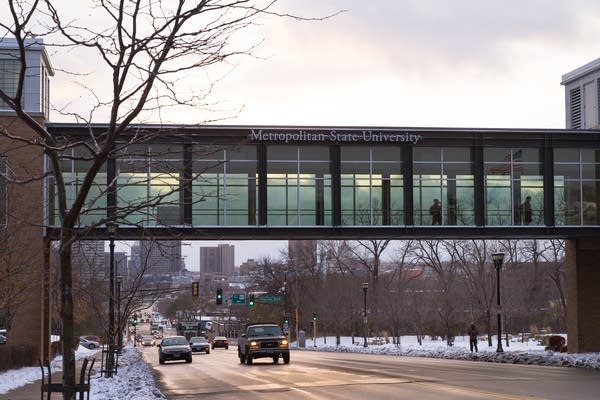Drop in enrollment means financial trouble for MnSCU

Metropolitan State University in St. Paul, Nov. 11, 2014.
Yi-Chin Lee | MPR News 2014
Go Deeper.
Create an account or log in to save stories.
Like this?
Thanks for liking this story! We have added it to a list of your favorite stories.


